Welcome, senior homeowners, to a revealing journey into the world of reverse mortgages and the often misunderstood topic of tax implications. Today, we’ll unravel the mysteries, debunk the myths, and shed light on the truth about how taxes come into play when considering a reverse mortgage. So grab a cup of tea, sit back, and let’s dive in!
How Do Reverse Mortgages Work?
Before we delve into the tax implications, let’s quickly refresh our understanding of how reverse mortgages work. A reverse mortgage is a loan designed for homeowners aged 62 or older, allowing them to convert a portion of their home equity into cash. Instead of making monthly payments to the lender, as with a traditional mortgage, the reverse mortgage pays the homeowner.
The loan becomes due when the homeowner passes away, sells the home, or no longer uses it as their primary residence. At that point, the loan, along with any accumulated interest, must be repaid.
Tax Implications for Reverse Mortgages
Tax implications are an essential aspect to consider when exploring reverse mortgages. While the loan proceeds themselves are tax-free, understanding the potential impact on other areas of your finances is crucial. Let’s break it down:
Proceeds from Reverse Mortgages
The funds you receive from a reverse mortgage are not considered taxable income. This means you don’t have to worry about reporting them on your tax return. The money is yours to use as you see fit—whether it’s paying off debt, covering medical expenses, or enjoying a well-deserved vacation.
Social Security and Medicare
Rest assured, seniors! The proceeds from a reverse mortgage typically do not affect your eligibility for Social Security or Medicare benefits. These programs consider reverse mortgage funds as a loan advance, not income. Therefore, they have no impact on the benefits you’re entitled to receive.
Medicaid and Supplemental Security Income (SSI)
Reverse mortgage proceeds might affect your eligibility for Medicaid and Supplemental Security Income (SSI). These programs have specific income and asset limits. If the loan proceeds are not spent within the same month they are received, they could increase your countable assets and potentially impact your eligibility for these assistance programs. It’s crucial to consult with a financial advisor or an expert in elder law to fully understand the potential ramifications.
Property Taxes
Reverse mortgages can affect the way property taxes are handled. In a traditional mortgage, the homeowner is responsible for paying property taxes directly. However, with a reverse mortgage, the loan proceeds can be used to cover property tax payments. This can provide financial relief for seniors on fixed incomes. However, it’s important to note that the responsibility for property tax payment remains with the homeowner, even if a portion of the loan proceeds is used for this purpose.
Interest Deductibility
In most cases, the interest accrued on a reverse mortgage is not tax-deductible until the loan is paid off. This differs from traditional mortgages, where homeowners can often deduct mortgage interest on their tax returns. However, once the loan is repaid, whether by selling the home or other means, the accumulated interest may become tax-deductible. It’s advisable to consult with a tax professional to fully understand the deductibility rules and any potential tax benefits.
Capital Gains Tax
One significant advantage of a reverse mortgage is that the loan does not trigger capital gains tax. When you sell your home, any profit exceeding the capital gains tax exclusion limit would typically be subject to taxes. However, with a reverse mortgage, the loan is not considered taxable income, allowing you to access your home equity without penalty.
Estate Taxes
Estate taxes are another consideration when it comes to reverse mortgages. When a homeowner passes away, their estate may be subject to estate taxes depending on its value. The loan balance of a reverse mortgage is usually repaid from the proceeds of selling the home. If the remaining equity in the home exceeds the estate tax exemption limit, it could potentially affect the estate tax liability. It’s advisable to consult with an estate planning professional to understand the impact on your specific situation.
FAQs
Can I deduct the interest paid on a reverse mortgage?
No, in most cases, the interest accrued on a reverse mortgage is not tax-deductible until the loan is paid off. However, it’s essential to consult with a tax professional as there might be exceptions or specific circumstances that allow for deductibility.
Will a reverse mortgage affect my Social Security or Medicare benefits?
No, the proceeds from a reverse mortgage are typically considered a loan advance and not income. Therefore, they do not impact your eligibility for Social Security or Medicare benefits.
How do reverse mortgages affect Medicaid and Supplemental Security Income (SSI)?
Reverse mortgage proceeds can potentially impact your eligibility for Medicaid and SSI. If the loan proceeds are not spent within the same month they are received, they could increase your countable assets, affecting your eligibility for these assistance programs. It’s advisable to consult with a financial advisor or an elder law expert to understand the specific implications.
Can I use reverse mortgage funds to pay property taxes?
Yes, one of the benefits of a reverse mortgage is that the loan proceeds can be used to cover property tax payments. However, it’s important to note that the responsibility for property tax payment remains with the homeowner, even if a portion of the loan proceeds is used for this purpose.
Will I owe capital gains tax if I have a reverse mortgage?
No, a reverse mortgage does not trigger capital gains tax. When you sell your home, any profit exceeding the capital gains tax exclusion limit would typically be subject to taxes. However, with a reverse mortgage, the loan is not considered taxable income, providing relief from capital gains tax.
Can I leave my home to my heirs if I have a reverse mortgage?
Yes, you can leave your home to your heirs even if you have a reverse mortgage. However, your heirs will need to repay the loan balance or refinance the loan using other funds. They have the option to sell the home and use the proceeds to repay the loan as well. It’s important to communicate your intentions to your heirs and involve them in the decision-making process.
The LeaderOne Lowdown on Tax Implications of Reverse Mortgages
As senior homeowners, understanding the tax implications of reverse mortgages is vital when considering this financial option. While the proceeds from a reverse mortgage are tax-free, it’s essential to consider other areas such as Medicaid eligibility, property taxes, interest deductibility, and estate taxes.
Navigating the complexities of tax implications can be overwhelming, so it’s advisable to seek guidance from financial advisors, tax professionals, and experts in elder law. They can provide tailored advice based on your specific circumstances and ensure you make informed decisions.
Remember, LeaderOne Financial and the Roller Mortgage Team are here to support you throughout your reverse mortgage journey. Feel free to reach out to us with any questions or concerns you may have. Cheers to uncovering the truth about tax implications for reverse mortgages and empowering yourself with knowledge!



